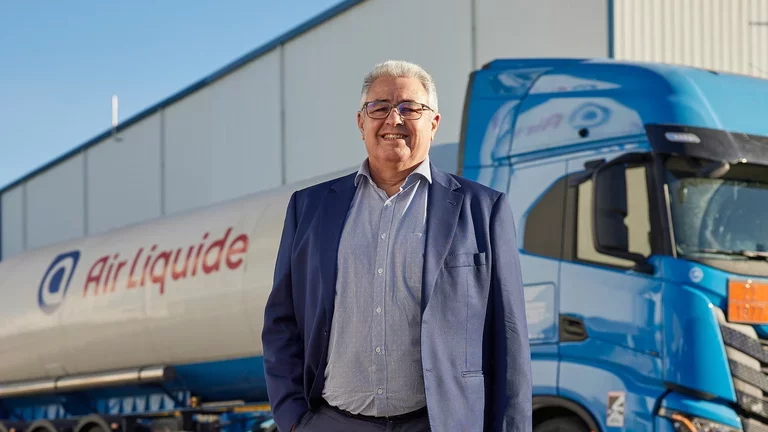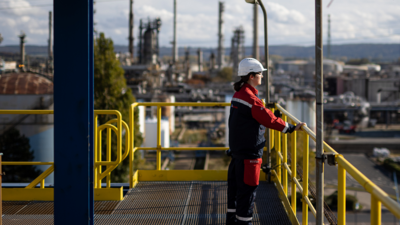To reduce the Group’s carbon footprint from transporting its gases, Air Liquide is partnering with carriers like Transmol to convert their truck fleets to run on alternative fuel sources.

“This partnership allowed us to create more value for our own company.
”
Air Liquide wanted to shift the heavy vehicles used to transport its gases to clean fuel sources. Transmol played a key role in this in Spain, can you tell us more about it?
We’ve been driving Air Liquide pressurized gas in the industrial market for 10 years. In 2017, we decided to replace diesel trucks at the end of their service life with trucks running on natural gas for vehicles (NGV). Since then, the proportion of NGV trucks in our fleet that serves Air Liquide has risen consistently. 50 out of 55 units have now made the transition to NGV.
What were the challenges of changing to NGV, and how did Transmol and Air Liquide work together to surmount them?
Air Liquide contacted experts and invested in gathering valuable information before the switch to NGV. They ensured the change would be profitable for us and for them before committing, and they were able to prove it to us with efficiency and safety data. The research carried out allowed us to make the switch with confidence. We were already familiar with the gas itself, as we specialize in transporting large volumes of NGV, and we shared our relevant experiences with Air Liquide as well. We worked together to determine the best roll-out of NGV in our fleet.
How has Transmol benefited from this switch?
We will soon start to see a positive economic impact from switching to a green fuel like NGV. Operating costs are tipping in our favor as taxes on diesel are rising. We also have improved our own environmental performance, which will benefit us in operational terms as cities in Spain start to impose restrictions on CO2 emissions. Moreover, having trucks running on NGV allows us to avoid harmful particles such as NOx and SO2. This partnership allowed us to create more value for our own company.A minor amount of air gases and hydrogen produced by Air Liquide are transported by road – the rest travel either by pipeline or are provided through units directly installed at the customers’ sites. Thanks to the success of delivery optimization programs, efficiency continues to improve as part of the Group’s goal of reducing its carbon footprint linked to gases transportation.


